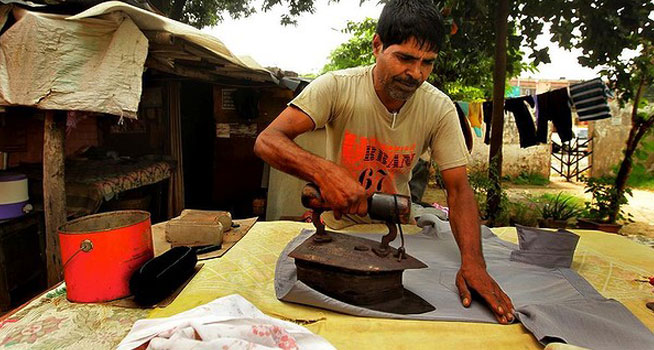On a usual Thursday January morning, I woke up from my deep slumber (late as usual) and found myself racing against time to complete the usual daily morning chores that all of us are largely obliged to take on day after day. Sometimes, these chores in itself seem like a burden on the whole.
Sleepy and tired, and jaded more than ever, I slowly made my way through each chore and realized I was running late, as I pushed myself to finish faster and reached the part where I had to press my chosen white cotton outfit of the day. A Cotton Outfit. Do you know how incredibly tough it is to actually iron a cotton outfit yourself and that too, to do it well? To me, it’s close to impossible. And I do believe it requires talent! A complete cotton outfit requires wisdom to ease the creases out! And as I started ironing my cute white dress, the creases just refused to go away! Okay, I agree, I don’t have the best of ironing skills…

Skills they have, we all agree. But dare not we should doubt their sharp minds. I still can’t recollect a day when they delivered a wrong set of clothes at my place. They do not mark my clothes when they come to collect them in the morning. All they do is count. On an average, a dhobi caters to around 20-30 house holds in a society or more. But by the end of the day, each home gets their set of clothes back, without being delivered with someone else’s set of clothes. Nothing much I can do, other than respect them for the unnoticed knack at their job and dedicated hard work.
But, of course, like it is common in the true world – real talent goes unnoticed/unidentified. When you know there is someone else to do the job for you, you often forget how much effort is required, not to mention patience and timely coordination to actually do it. Think about it. What if one of your early morning visitors (read the dhobi) suddenly stopped coming? Your entire schedule would get affected for the next couple of days until you find a replacement. And in the meantime, you’d be constantly struggling with your iron and probably handing out curses generously.
Our dhobis probably get a remuneration that would make the most of us snicker. Even when the actual return is so low, most of us still tend to bargain for better rates. We know we can’t do without our dhobis, but we still don’t realize how important they actually are in our scheme of things!
If you actually take the time or just a single moment to think about it, you would be taken aback at how much, we as a force, take people for granted. The dhobi though, is just the beginning…


